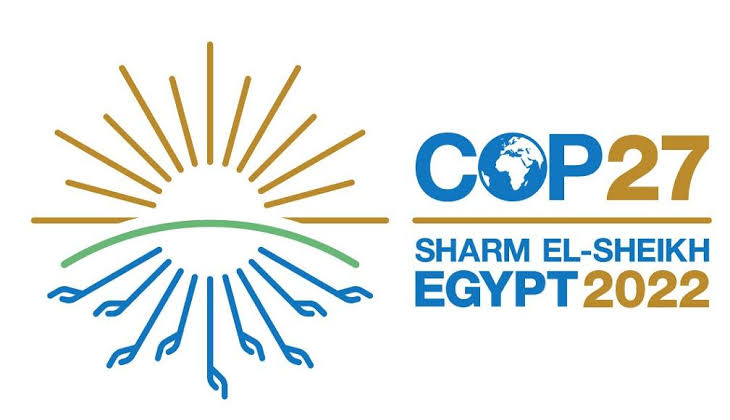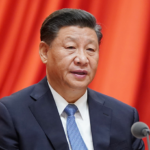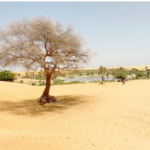By Simplice Nouala
As the 2022 United Nations Climate Change Conference (COP27) proceeds in Egypt, few seem to be acknowledging that the elephant in the room is actually a cow. The livestock sector has faced global scrutiny for its contribution to climate change, but is reducing livestock production actually a fair, or even an honest, climate outcome?
The answer is less than straightforward when considering the billions of people living in the Global South. As counterintuitive as it might seem at a first glance to people living in the “Global North”, there is a strong case to invest more in sustainable livestock systems across the developing world as a matter of climate justice. Let me explain.
Barnard College hosts third annual global symposium in South Africa
Google launches tool to prepare job seekers for interviews
Having been widely recognised as the “African COP”, this year’s negotiations are emphasising the need to support the most vulnerable in adapting to climate change by requiring the wealthiest historic emitters of greenhouse gases to pay for the loss and damage that has already occurred. Livestock actually offers a compelling case for both of these priorities.
If COP27 is to truly deliver for Africa, this should start with recognising the vast differences between livestock in the Global North and South. Viewing livestock and its climate impact in developing countries through the same lens as livestock in the Global North is, at best, inaccurate, and at worst, actively harmful.
The African continent is responsible for just under four per cent of historic global emissions, yet – along with the broader developing world – is already facing the worst effects of climate change.
However, many of these countries’ livestock sectors can help them endure this change in the short term and transition fairly in the long run. This is because livestock across the Global South is not simply the packaged meat, milk, and eggs the Western audiences are familiar with; it is a complex production system that anchors whole economies, societies and ecosystems.
The benefits livestock provides for many in poor, low-emitting countries are clear. In particular, livestock is a reliable source of income for Africa’s farmers, including marginalised groups like women, who often are not allowed or are unable to own other assets easily. Livestock also offers a valuable safety net in rural communities in a time of need, for example, when crop harvests fail.
Likewise, livestock also provides vital and sustainable assistance in all aspects of farm management: cows pull ploughs, eat leftover crop residues after harvest, and convert residues into valuable manure for the next season – often when other fertiliser sources are simply not available or are prohibitively expensive. They also play an important role in managing rangelands sustainably.
In addition to this, and perhaps most importantly, livestock provides an accessible and high-quality source of nutrition for those who do not have the privilege of other food choices and struggle disproportionately with undernutrition rather than excess (as is often the case in the Global North).
Advocating for a reduction in livestock production in the Global South would deprive some of the world’s most vulnerable communities of the clear benefits these animals provide. Livestock has significant potential as a key climate solution in these regions, whose per capita emissions are small fractions of what the world’s highest-emitting nations produce.
Instead of cutting their investments in livestock, donor governments should commit to supporting the crucial research that will help the livestock sector in the Global South to develop more sustainably. Additional investment could make a systemic difference in climate adaptation, One Health – the intersection between the health of people, animals and the environment, as defined by the UN – and greater productivity and profitability.
While efforts to mitigate climate change should continue, we know that they will not be enough, as a certain amount of global warming is now inevitable. Therefore, more research is needed to support more resilient animal breeds while developing greater social safety nets and livelihood opportunities for livestock farmers.
Furthermore, we need to improve access to opportunities for women and other marginalised groups who will bear the brunt of climate change fallout.
More gender-focused research is critical to reducing poverty and making sustainable development possible for poor livestock keepers, their families and the communities in which they live.
Livestock is too often painted with the same brush regardless of the context in which it is raised, the benefits it can provide for vulnerable communities, or its actual environmental impact.
Livestock should instead be celebrated, not demonised, for the role it plays across the Global South.
At the COP27 summit, climate negotiators and governments alike should recognise that sustainable livestock can now also play a vital role in delivering climate justice. After all, a cow in Kenya or Niger is not the same as a cow in the United States or in the Netherlands.
Nouala is the Head of the Agriculture and Food Security Division at the African Union Commission
Source: Aljazeera

 Join Daily Trust WhatsApp Community For Quick Access To News and Happenings Around You.
Join Daily Trust WhatsApp Community For Quick Access To News and Happenings Around You.


